10 Must-Read Personal Finance Books
Ready to Get Real About Your Money?
Let’s face it—finances can feel like flossing. You know it’s important, but it’s usually last on the list, and unlike flossing it can’t really be done while watching TV.
This post is your cheat sheet to the best personal finance books out there—handpicked for busy, bold, brilliant women like you who are tired of the guesswork and ready for a glow-up (financially speaking). Also, the only reason I know anything about glow-ups is due to my 12 year old daughter.
Why is this on the list of ‘to do’ you might ask; when lord knows we all have 57 other things that are competing for our attention. It’s because of this response I get when asking this question to new financial coaching clients.
Weren't taught about money? Start here.
Q: Tell me about growing up with money; what were you taught? What did you learn? Hear? Observe?
A: I wasn’t really taught anything about money – formally or informally, at home or at school.
9 times out of 10, this is the very predictable response that I hear, followed by anecdotes about what life was like in their home and what little pieces they picked up about the flow of money, stress impact, and the dots they started putting together later in life.
Let’s change that story of “not knowing” about money any longer. We have SO many great personal finance books at our fingertips to put the pieces together now. No more excuses. Pick one, just one from the list below and commit to learning. School’s back in session folks.
Here are 10 finance reads worth your time—and all for the benefit of your money mindset. Each personal finance book breakdown includes a quick summary, three key takeaways, a killer quote, who it’s good for, why it matters now, insights, and a “Worth the Read” rating. Let’s get into it.
1. Financial Literacy for All by John Hope Bryant
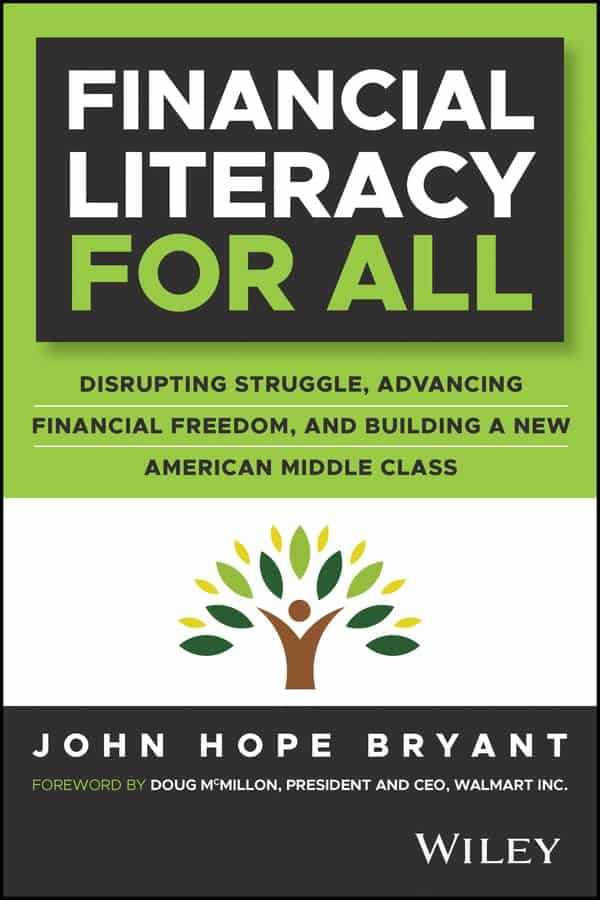
Quick Summary: A rallying cry to make financial literacy the new civil rights movement. Bryant reframes money mastery as a human right and societal equalizer.
3 Key Takeaways:
- Mindset shapes financial destiny.
- Financial education equals empowerment.
- Economic freedom starts at home and spreads outward.
Best Quote: “Being broke is a temporary economic situation. But being poor is a disabling frame of mind and a depressed condition of the spirit.”
Who It’s Good For: Anyone who wants to break generational cycles and build financial dignity.
Why It Matters Now: Economic inequality is real—and education is our best defense.
Insights: This one lights a fire. It’s part TED Talk, part truth serum, and completely energizing.
Worth the Read? 
Author Website: https://johnhopebryant.com
2. Money for Couples by Ramit Sethi
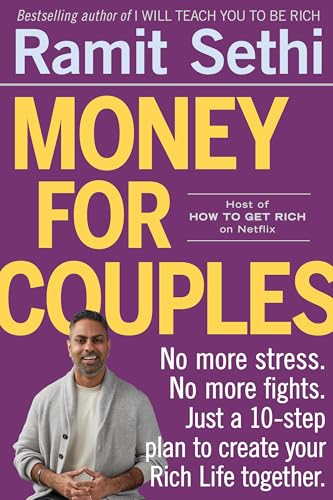
Quick Summary: Ramit brings his signature sass and strategy to the emotionally loaded topic of money in relationships. No-nonsense, highly actionable.
3 Key Takeaways:
- Talk early, talk often.
- Joint goals matter more than joint accounts.
- Systems beat willpower every time.
Best Quote: “A Rich Life is lived outside the spreadsheet—it’s about your ideal lifestyle, and money is just the tool.”
Who It’s Good For: Partners trying to avoid (or recover from) money fights.
Why It Matters Now: Inflation + stress = ticking time bomb if you’re not aligned.
Insights: If you’ve ever argued about Target receipts, read this.
Worth the Read?
Author Website: https://www.iwillteachyoutoberich.com
This personal finance book has become a new favorite of mine; I purchased it on Audible and then again a paperback option on Amazon to have as a reference. There are several tangible and actionable exercises to use alongside your partner\
3. Rich Dad, Poor Dad by Robert Kiyosaki
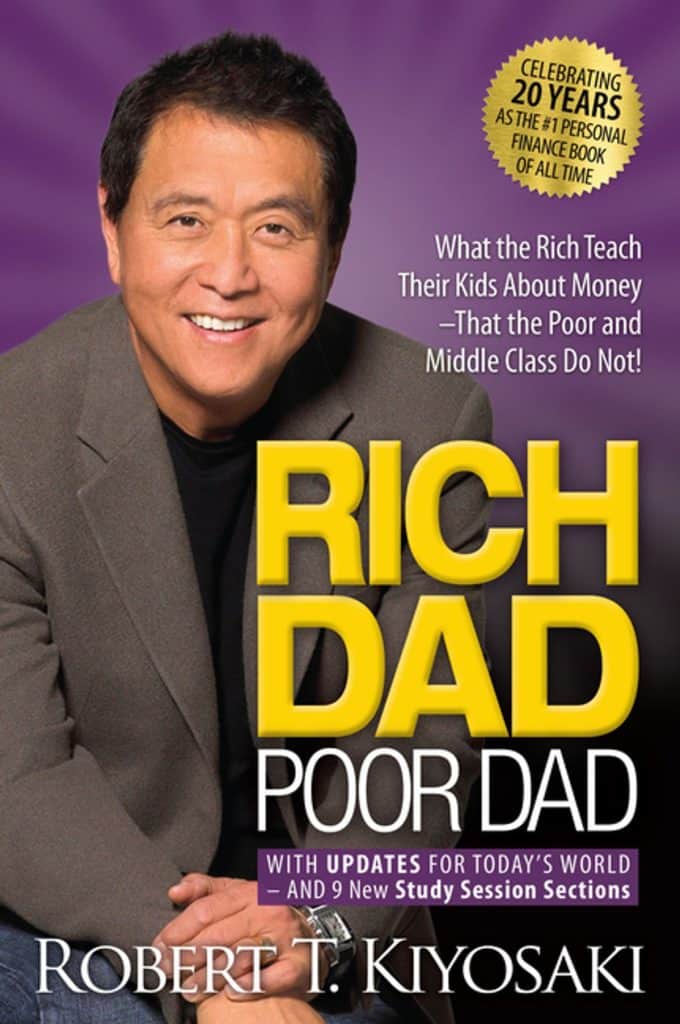
Quick Summary: A classic contrast between two mindsets: one focused on security, the other on wealth creation. Still a go-to personal finance book for mindset shifts.
3 Key Takeaways:
- Assets > liabilities, always.
- Don’t work for money—make money work for you.
- Financial education isn’t taught in school, but it should be.
Best Quote: “The rich don’t work for money. They make money work for them.”
Who It’s Good For: Anyone just beginning their money journey.
Why It Matters Now: As the economy shifts, old rules don’t apply. This book builds new thinking.
Insights: Some parts are dated, but it’s foundational. Worth reading with a highlighter.
Worth the Read?
Author Website: https://www.richdad.com
4. The Great Money Reset by Jill Schlesinger
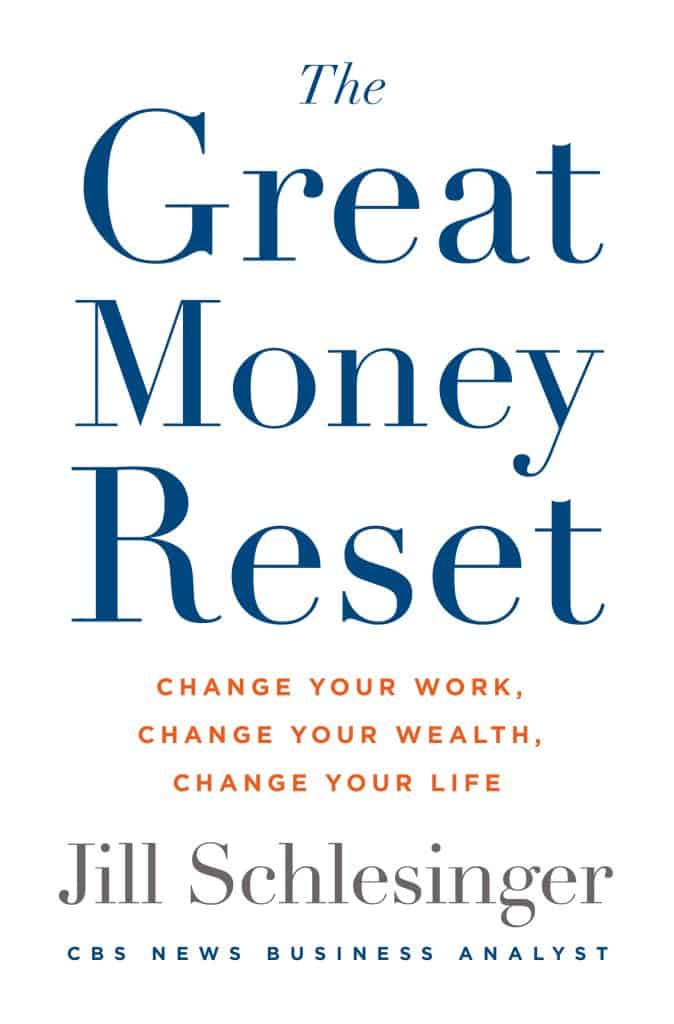
Quick Summary: A classic contrast between two mindsets: one focused on security, the other on wealth creation. Still a go-to personal finance book for mindset shifts.
3 Key Takeaways:
- Assets > liabilities, always.
- Don’t work for money—make money work for you.
- Financial education isn’t taught in school, but it should be.
Quick Summary: Post-pandemic reality check on priorities, money, and life pivots—with actionable financial advice to match.
3 Key Takeaways:
- Your values and money must align.
- Resetting doesn’t mean wrecking your finances.
- There’s no such thing as too late.
Best Quote: “A money reset is not an act of impulsiveness—it’s a structured process rooted in clarity.”
Who It’s Good For: Anyone craving a life pivot but unsure how to afford it.
Why It Matters Now: Work-life norms have changed. Your financial plan should too.
Insights: Inspiring and practical—great for midlife reflection.
Worth the Read? ⭐️⭐️⭐️⭐️
Author Website: https://www.jillonmoney.com
5. Managing Your Money by Usborne
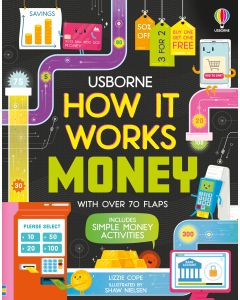
Quick Summary: A colorful, accessible intro to budgeting, saving, and spending aimed at teens but sneakily smart for grownups.
3 Key Takeaways:
- Visuals make finance less intimidating.
- Budgeting can (almost) be fun.
- Smart decisions start young.
Best Quote: “Every penny you spend is a choice about the life you want.”
Who It’s Good For: Teens, parents, and visual learners.
Why It Matters Now: Teaching the next generation can fix financial illiteracy.
Insights: Don’t knock it till you read it—super digestible.
Worth the Read?
Publisher Website: https://usborne.com
6. Financial Feminist by Tori Dunlap
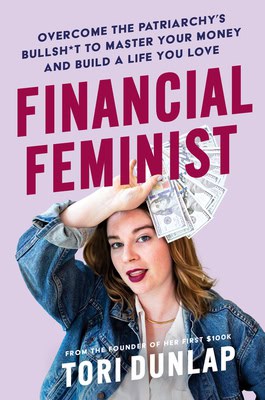
Quick Summary: Feminist money manifesto from TikTok phenom turned financial powerhouse. Talks equity, investing, and empowerment.
3 Key Takeaways:
- Money is power. Own yours.
- You don’t need a finance degree to start investing.
- Systems > shame.
Best Quote: “You can’t budget your way out of systemic inequality—but you can still build wealth.”
Who It’s Good For: Women fed up with playing small.
Why It Matters Now: Pay gaps and pink taxes aren’t disappearing—so we need to get louder.
Insights: A punchy combo of education and revolution.
Worth the Read? ⭐️⭐️⭐️⭐️
Author Website: https://herfirst100k.com
7. Money for Millennials by Sarah Young Fisher & Susan Shelly McGovern
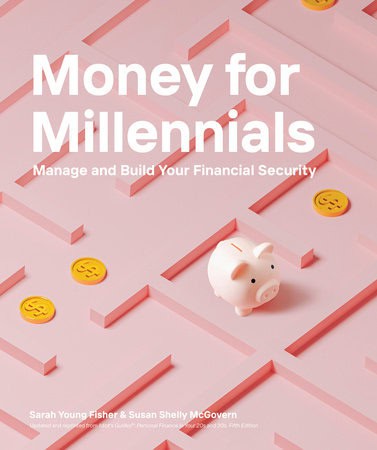
Quick Summary: A practical starter kit for navigating adulting—debt, credit, investing, and first-job finances.
3 Key Takeaways:
- Compound interest is your BFF.
- Don’t wait to start saving.
- Credit isn’t evil—it’s a tool.
Best Quote: “Financial freedom doesn’t mean having it all—it means controlling what you need.”
Who It’s Good For: New grads, young adults, or late bloomers.
Why It Matters Now: Millennials are mid-career—it’s not too late to course correct.
Insights: Clear, realistic, and refreshingly non-preachy personal finance book.
Worth the Read? ⭐️⭐️⭐️⭐️
Author Link: https://www.amazon.com/Money-Millennials-Sarah-Fisher/dp/1440570847
8. Know Yourself, Know Your Money by Rachel Cruze
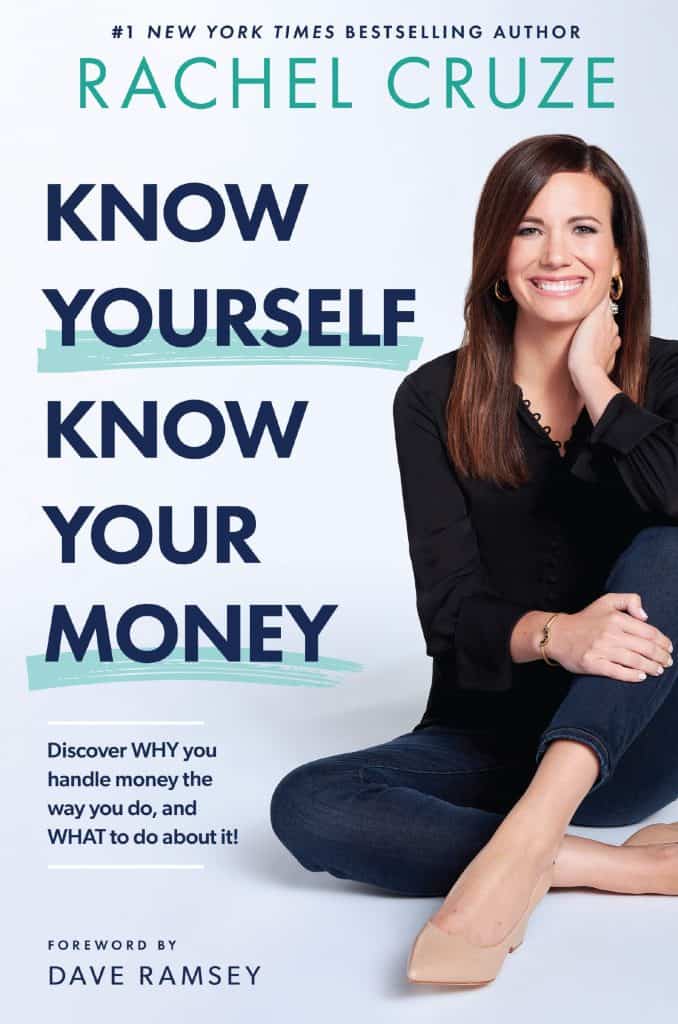
Quick Summary: Unpacks the emotions and stories behind your spending habits. Part money coaching, part therapy.
3 Key Takeaways:
- Your past shapes your present money mindset.
- Awareness leads to intentionality.
- Contentment is more powerful than comparison.
Best Quote: “You have to understand your money tendencies before you can change them.”
Who It’s Good For: Overthinkers, feelers, and financial avoiders.
Why It Matters Now: Emotional spending is real—and so is financial burnout.
Insights: A gentle gut-punch with reflection prompts that hit home.
Worth the Read? ⭐️⭐️⭐️⭐️½
Author Website: https://www.rachelcruze.com
I’ve used an assessment by the author of the same title that helps individuals and couples identify their money tendencies and create awareness and discussion points moving forward. Great way to fast track your progress.
9. Total Money Makeover by Dave Ramsey
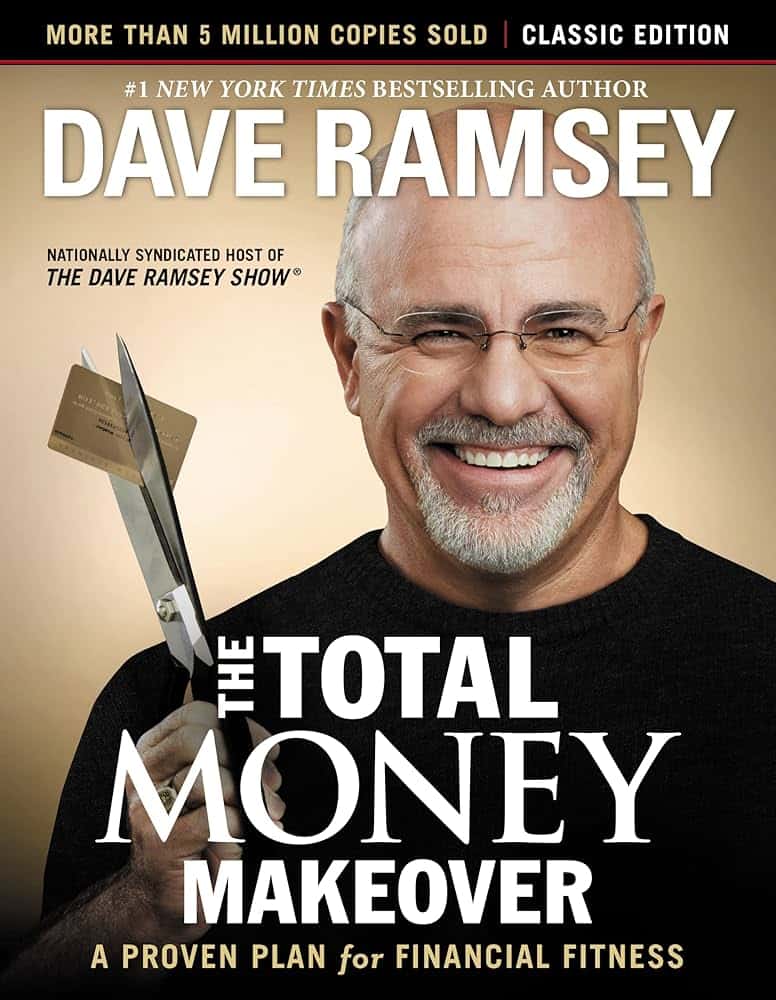
Quick Summary: The OG step-by-step plan for ditching debt, saving aggressively, and getting your financial house in order.
3 Key Takeaways:
- The baby steps work (yes, even now).
- Debt is not a wealth tool.
- Budgeting = freedom, not restriction.
Best Quote: “Live like no one else, so later you can live—and give—like no one else.”
Who It’s Good For: Debt-burdened, structure-loving folks.
Why It Matters Now: Debt fatigue is high. This book offers a proven plan.
Insights: Polarizing, yes. But it’s changed millions of lives.
Worth the Read? ⭐️⭐️⭐️⭐️½
Author Website: https://www.ramseysolutions.com
10. Retire Inspired by Chris Hogan
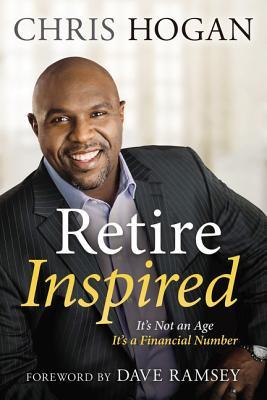
Quick Summary: Ditches the age-based mindset around retirement and reframes it as a number-based goal anyone can hit.
3 Key Takeaways:
- Retirement isn’t an age—it’s a financial finish line.
- Start where you are. Progress is possible.
- Clarity + planning = confidence.
Best Quote: “Retirement isn’t an old person thing—it’s a smart person thing.”
Who It’s Good For: Midlifers feeling behind on retirement goals.
Why It Matters Now: Too many women are underprepared—and outliving their money.
Insights: Refreshing and doable—perfect for getting unstuck.
Worth the Read? ⭐️⭐️⭐️⭐️
Author Website: https://www.ramseysolutions.com/chris-hogan
Final Thoughts: Your Money, Your Move
If you’ve made it this far, your money mindset is already leveling up. These books aren’t just reads—they’re roadmaps. Don’t let overwhelm win. Choose one that spoke to you and crack it open. The best investment you can make is in yourself and your financial peace.
Keep leading YOUR journey to influence—on your terms, with your money, and your momentum.
If you’re thirsting for more reading on personal finance, click here to get loads of past content.
Thank you for joining me on my journey to influence.


Sign up below to get a weekly email with tips, tricks, and truth about intentionality with your time, talent, and money.
